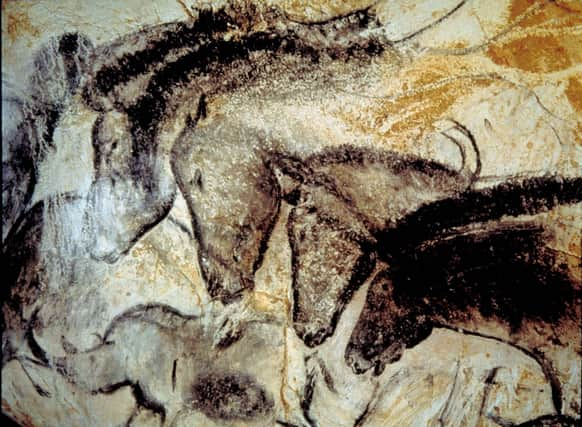Radiocarbon breakthrough shifts history’s timeline


Data scientists in Yorkshire are among those behind a new model for evaluating the age of discoveries from the ancient world using radiocarbon techniques.
Their statistics, published last night as part of a new worldwide standard, have set experts speculating on whether landmark events in human and geological history might have been earlier than previously thought.
Advertisement
Hide AdAdvertisement
Hide AdDr Tim Heaton, from Sheffield University, who was among the report’s lead authors, said the findings could also help scientists understand the effects of historic climate change events in the context of those of today.


“We need to have a timescale as to what happened, when, and how fast things happened. The more we know about what the climate was like in the past, the more we can try and predict what the future might be, and try and mitigate climate change,” he said.
He said the new measurements had made it possible to calculate that melting ice sheets around 14,500 years ago had caused sea levels to rise by around a metre every decade – double the previous estimate and more than projected for the current century.
“We have been lucky for the last 11,500 years in that the climate has been very stable. The concern is that we’re reaching a tipping point through human activity that will push it into a much more scary place – and perhaps a return to things we’ve seen a long time in the past,” Dr Heaton said.
Advertisement
Hide AdAdvertisement
Hide AdThe new data was also likely to establish that one of the world’s oldest prehistoric rock art sites, the Chauvet cave in the Ardèche region of southeastern France, was around 36,000 years old – some 450 years older than previously thought, he added.
And it might finally pinpoint the collapse of the Minoan civilization which flourished on the Aegean Islands during the Bronze Age.
The race was wiped out by one of the biggest volcanic eruptions ever recorded, and a leaf on an olive branch excavated from the site is the most significant scientific clue to when it happened.
Radiocarbon dating using the new measurements was likely to place it at around 1600BC – significantly earlier than archeologists had believed, Dr Heaton said
Advertisement
Hide AdAdvertisement
Hide AdAlex Bayliss, head of scientific dating at Historic England, said the new measurements had “internationally important implications” for understanding the world’s heritage.
“Accurate and high-precision radiocarbon dating underpins the public’s enjoyment of the historic environment and enables better preservation and protection,” he said.
Professor Paula Reimer, from Queen’s University Belfast, who headed the project, said the researched helped to “answer big questions about the environment and our place within it”, adding: “Radiocarbon dating has revolutionised the field of archaeology and environmental science. As we improve the calibration curve, we learn more about our history.”
Editor’s note: first and foremost - and rarely have I written down these words with more sincerity - I hope this finds you well.
Advertisement
Hide AdAdvertisement
Hide AdAlmost certainly you are here because you value the quality and the integrity of the journalism produced by The Yorkshire Post’s journalists - almost all of which live alongside you in Yorkshire, spending the wages they earn with Yorkshire businesses - who last year took this title to the industry watchdog’s Most Trusted Newspaper in Britain accolade.
And that is why I must make an urgent request of you: as advertising revenue declines, your support becomes evermore crucial to the maintenance of the journalistic standards expected of The Yorkshire Post. If you can, safely, please buy a paper or take up a subscription. We want to continue to make you proud of Yorkshire’s National Newspaper but we are going to need your help.
Postal subscription copies can be ordered by calling 0330 4030066 or by emailing subscriptions@jpimedia.co.uk. Vouchers, to be exchanged at retail sales outlets - our newsagents need you, too - can be subscribed to by contacting subscriptions on 0330 1235950 or by visiting www.localsubsplus.co.uk where you should select The Yorkshire Post from the list of titles available.
If you want to help right now, download our tablet app from the App / Play Stores. Every contribution you make helps to provide this county with the best regional journalism in the country.
Sincerely. Thank you.
James Mitchinson, Editor
Comment Guidelines
National World encourages reader discussion on our stories. User feedback, insights and back-and-forth exchanges add a rich layer of context to reporting. Please review our Community Guidelines before commenting.